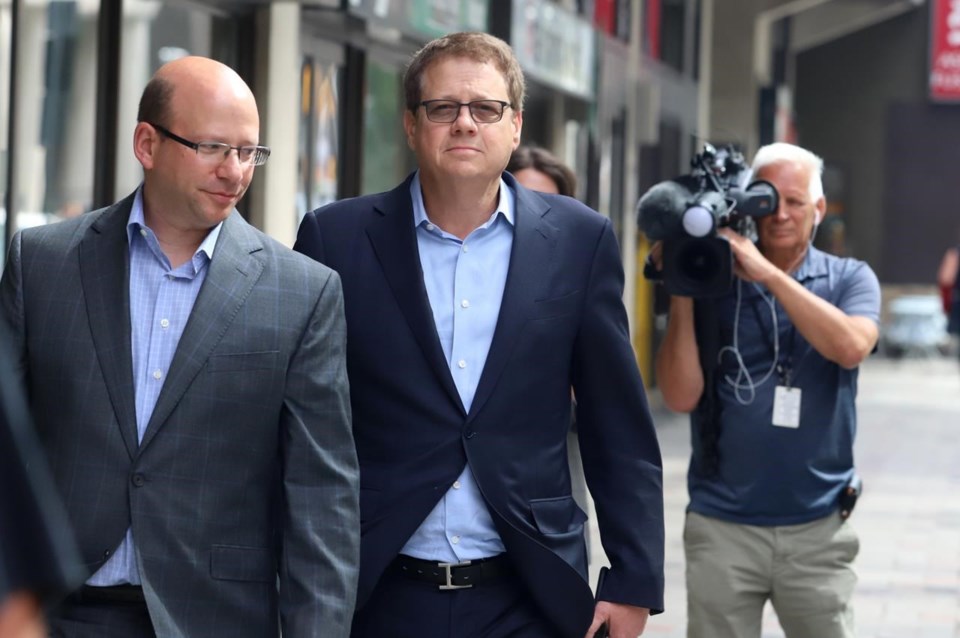TORONTO — There’s no evidence that a grocery code of conduct would raise food prices for Canadians, said Empire Co. Ltd. chief executive Michael Medline.
He told an audience at a Retail Council of Canada event in Toronto on Tuesday that he wouldn’t support a grocery code of conduct for his industry if he thought it would raise food prices.
Medline, who was the first grocery executive to speak out in favour of a code, said he hopes the grocery code could lead to lower food prices in the future, but added it’s not a panacea "for all the issues that drive up prices."
Last fall, Loblaw and Walmart said they wouldn’t sign on to the code as currently drafted, stalling progress as the agreement neared completion.
Proponents of the code say it will help level the playing field for suppliers and smaller grocery retailers by introducing rules for negotiations between industry players. It would also include a dispute resolution process.
But Loblaw and Walmart have said they are concerned it would raise food prices for Canadians.
The impasse has led to talk of the code being made mandatory instead of voluntary, with the House of Commons committee tasked with studying food prices telling Loblaw and Walmart that if they don't sign on, the committee will recommend the code be made law.
Medline said he’s frustrated at how long the code has taken, but still believes there’s a way to keep it industry-led instead of bringing in legislation.
"It’s high time this was brought to a close," the president and CEO of Sobeys’ parent company said.
There’s no code without all the retailers, added Medline in an interview after the event.
“I think everyone's caught in a bit of a stalemate right now trying to figure out how to put pressure on the parties that won't sign,” he said.
“I think it’s a bit of a game of chicken here.”
Discussions about the code are ongoing with all retailers, said Doug Nathanson, Empire’s executive vice-president, chief development officer and general counsel, in an interview.
“We're not giving up, so it's not at a standstill. We're trying to get everyone's consensus,” said Nathanson.
Medline said he believes the code represents a better way to do business. Having come to the grocery industry from Canadian Tire, he said he was surprised to learn of some of thepractices that were rampant in the sector.
“I was just shocked coming into grocery ... how the industry did business,” he said.
These included fees such as the ones introduced by Loblaw and Walmart on suppliers in 2020 to help pay for infrastructure investments.
While talk of a code preceded that, Medline said he thinks that was the proverbial straw that broke the camel’s back, finally pushing the industry to start developing a code.
In his talk, Medline also called on the Competition Bureau to end its ongoing bread price-fixing investigation, calling it “misguided from the start.”
Medline said Empire did not participate in fixing the price of bread in Canada, and said the ongoing investigation has damaged the retailer's brand.
“We've asked the bureau many, many times to bring their inquiry to a close and clear our name,” he said. “Instead, their investigation drags on and the cloud over our head remains.”
The Competition Bureau began investigating the alleged bread price-fixing agreements in January 2016. Weston Foods and Loblaw Cos. Ltd., both subsidiaries of George Weston at the time, previously admitted their participation in an “industry-wide price-fixing arrangement” and have received immunity from prosecution by the Competition Bureau in exchange for their co-operation.
At least $1.50 was artificially added to the price of a bread loaf during the 16-year conspiracy involving Canada's largest bakery wholesalers and grocery retailers, the Competition Bureau alleged in court documents in 2018.
In June 2023, Canada Bread was fined $50 million after pleading guilty to four counts of price-fixing bread products under the Competition Act. The Competition Bureau called it the highest price-fixing fine ever imposed by a Canadian court.
In the interview, Medline said he feels that the bread price-fixing allegations have undermined trust in the grocery industry, setting the stage for that trust to further slide amid food inflation and accusations that grocers were unduly profiting from it.
"That was the start of ... going downhill in the industry in terms of reputation," he said.
This report by The Canadian Press was first published April 2, 2024.
Companies in this story: (TSX:EMP.A)
Rosa Saba, The Canadian Press



